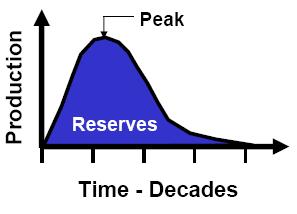
When San Francisco goes to the polls on November 6, two initiatives will be competing for public support. The outcome of this election may determine whether San Francisco continues on the "Transit First" path toward a becoming a livable city, or becomes a smaller version of the auto-dominated Los Angeles.
This election is shaping up to be a classic
big business vs. community battle.
Volunteers needed. If you have a few hours over the next week, you can plug into the campaign
here.
Carfree USA recommends. No on H, Yes on A.Here is why.
PROPOSITION H Shall the Planning Code be changed to increase the number of parking spaces that developers are permitted to build and ease restrictions on building new parking spaces for residential and non-residential buildings? No on Prop HProp. H would undo decades of careful planning to improve the livability of San Francisco.
It hearkens back to the days before the freeway revolt, when the push to add space for cars, no matter the cost, led engineers to plan highways through Golden Gate Park and city neighborhoods.
San Franciscans have spoken on this issue: we want livability, not traffic.
Prop. H would:
Create traffic and pollution for our neighborhoods.
If Prop. H passes, over 20 years, 20,000 new cars will be congesting San Francisco roads each day. Prop. H would increase parking in new buildings to such an extent that the roads would be clogged with commuters – making Muni run even slower. Our city works because many people get to work on transit, making commuting easier for all San Franciscans.
Create loopholes that allow for uncontrolled parking development and new traffic.
The measure exempts “low emission vehicles” from any limits whatsoever. That means virtually every new car sold in America qualifies. Want examples? The Hummer H1 and H3, Cadillac Escalade, Ford Expedition, and Range Rover. This measure removes essentially all limits on parking through this clever loophole.
Remove street trees and bus stops.
Today, you cannot add a curb cut if it would require removal of important street trees, bus stops, and other important features of our neighborhoods. This measure changes those provisions, giving private individuals an unfettered right to add curb cuts no matter the impact on our community.
This is the most radical anti-environment, anti-planning, measure to ever appear before San Francisco voters. In the era of global warming, it is deplorable for such a measure to be on the ballot. Don't support it.
PROPOSITION A Shall the Municipal Transportation Agency be provided greater governing authority, and additional funding, and be required to develop a Climate Action Plan, and shall the City not increase the maximum number of parking spaces allowed for new private development projects unless approved by a super-majority of the Board? Yes on Prop A Muni suffers from poor work rules, excessive bureaucracy and underfunding. Prop. A will fix it.
Restructures our transit agency (MTA) to cut waste.
It allows the General Manager to recruit people outside of the bureaucracy – and be able to fire anyone who does not perform. This is the most significant expansion of management accountability in decades.
Creates clean emissions standards to reduce global warming.
It requires the MTA to create a Climate Action Plan by 2009 with a goal of reducing greenhouse gas emissions from San Francisco's transportation sector to 80% of 1990 levels by 2012.
Increases funding for MUNI—without raising taxes or fares.
It allows the MTA will be able to keep 80% of parking revenue money, instead of sending half of it to the General Fund today. This amounts to $26 million to help keep Muni affordable and reliable.
Allows for fixes to broken work rules.
For decades, transit reform in San Francisco has run into an immovable obstacle – a Charter-imposed cap on salaries that eliminates the ability of managers to negotiate for new work rules that help make the system run better. This measure gives unions the incentive to join management for new rules that will increase reliability and efficiency.
Creates more efficient traffic management.
This measure consolidates responsibility for bus stop placement, lane striping, stop light signal control, and most of the minutia of traffic management. It gives responsibility for these technical issues to the MTA, the agency charged with coordinating all modes of transportation in San Francisco.















 A must-read for any one who wants to understand the issues surrounding the upcoming peace conference!
A must-read for any one who wants to understand the issues surrounding the upcoming peace conference!














